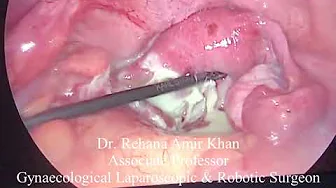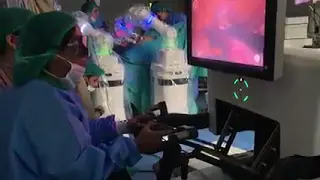IVF Services
IVF SERVICES
We are proud to announce as the best IVF Services In Pakistan.

Call the expert Gynecologist in Lahore, Discuss your problems in detail and get specialist advice and treatment.
In vitro fertilization (IVF)
IVF is a series of procedures to help you get pregnant. This happens when a human egg is fertilized with sperm in a laboratory. After that, when a fertilized egg (embryo) successfully implants in the uterus, pregnancy occurs.
IVF SERVICES
What is the need of IVF?
What happens during IVF?
IVF is a process in which each IVF cycle occurs with a menstrual cycle.
Blood test:
On the first day of your period, you will have a blood test at the fertility clinic.
Hormone stimulation:
Hormone stimulation therapy will begin on your period's second or third day. You will start taking medication to stimulate your follicles so they can produce multiple eggs.
Trigger injection:
Once the eggs reach a specific size, you will be injected with hormones stimulating the ovaries to mature and release the eggs.
Egg retrieval:
About 34 to 36 hours after the eggs are released, the eggs will be retrieved (collected). A fertility specialist will use a thin needle to insert into the vaginal wall into the follicle to retrieve the egg in general anesthesia.
Semen sample:
If you use fresh sperm for your partner, he will give you a semen sample on the same day your eggs are collected. Needle excision can help extract sperm directly from the testicles if this is impossible.
Fertilization:
Healthy sperm and eggs are collected in a petri dish and incubated overnight. In some cases, you may need intracytoplasmic sperm injection (ICSI), a procedure in which a single healthy sperm is injected into a mature egg. However, this can be useful when sperm quality is low.
Embryo transfer:
About 3 to 5 days after egg retrieval, a fertility specialist will transfer the embryos into your uterus. Usually, one embryo is transmitted, but occasionally more. In some cases, fertility specialists will wait for an embryo transfer. Any quality embryos that are not transferred may be frozen and used in the future, depending on your circumstances. Pregnancy rate with frozen embryos are same as with fresh embryos and no risk of genetic problems as with fresh embryos.
Pregnancy test:
After the embryo transfer, you will need to wait two weeks before taking a pregnancy test. Blood tests are more reliable than home pregnancy tests, so they are best done at a fertility clinic or your GP.
IVF SERVICES
What are the reasons for using in vitro fertilization?
The main reason for IVF is to treat infertility and some genetic problems.
You may consider IVF for several reasons, including you or your partner:
Cancer patients freeze their healthy eggs or sperm before cancer treatment, which can harm their fertility. Once your cancer treatment is over, these eggs or sperm can be thawed later and used for in vitro fertilization.
IVF SERVICES
Should I try other fertility treatments first?
IVF has been the treatment of choice for some people from the start. Others choose to try other fertility treatments, such as fertility drugs, surgery, . Your doctor can give you more information about the recommended treatment options.
What is the success rate of IVF?
The chances of IVF success depend on several factors. Some essential elements are your age, the age of your partner , and the cause of infertility. It would help if you asked about your successful conception and delivery chances.
This chance is higher if you are under 35 and decreases with age. At age 44, the chance of success is about 1 in 100.
Some women need five or more treatment cycles to be successful, while others get pregnant first time.
How long does artificial insemination IVF take?
IVF takes time. When you first think about it, you'll want to talk to your doctor and get a referral to an IVF clinic or fertility specialist.
Before starting any treatment, you (and your partner) will need several physical examinations and tests, such as ultrasound, sperm analysis, and blood tests. Even if you start IVF, you will go through many steps, including visits to clinics and laboratories.
In some cases, the first cycle is successful; then, couples are on their way to becoming parents. But if not, you may decide to try again or do more different processes. You may be advised to wait a while between cycles, so our fertility specialist will talk and discuss what works best for you.
IVF SERVICES
What are the risks of IVF?
It's important to remember that IVF carries the risk of not getting pregnant, which can be upsetting and emotionally distressing.
Medical risks include overstimulating the ovaries, which can be dangerous. Above all, this is also named "ovarian hyperstimulation syndrome," or OHSS.
Are there more or different risks to IVF pregnancy?
All pregnancies carry a risk of complications. Many factors may increase the risk of pregnancy complications, including advanced age (over 38), obesity, and smoking.
Women who conceive through IVF are more likely to experience the following complications during pregnancy:
The risk of complications depends on your condition. Before starting treatment, you should discuss the risks and benefits of IVF with our doctors.
Stress and Emotional Support
Not many couples get pregnant during their first IVF cycle - you may need several treatment cycles, and some don't get pregnant. This can be an emotional process, especially if you've been trying to have kids for a few years. You or your partner may also receive hormonal medications that can affect your mood and may affect your mood and sexual relationship.
You will be informed before you start treatment. You should also consider ongoing counseling to help with any emotional or relationship issues you or your partner may have.
IVF SERVICES
Alternatives to IVF
In vitro fertilization is a long and expensive process that requires a significant asset of physical and emotional energy. Some people may find other options, such as IUI and ICSI.
We have professional fertility specialists who have experience of more than a decade now, will discuss with you and help you decide what suits you IVF, ICSI, or IUI.
Expert IVF Gynecologist In Lahore; No More Hopelessness When we are with you…!!!!
We have a team of expert fertility specialists, and each passing day leads to hope with their quality treatment.
Please bring all your doubts to us; we bet you we have better solutions for each.
It would be best if you thoroughly discussed treatment options with our fertility specialist until satisfied.




